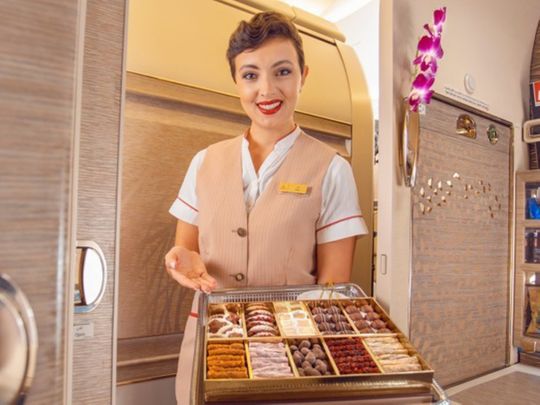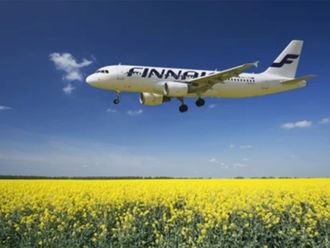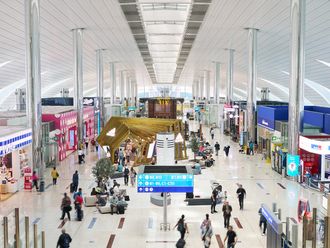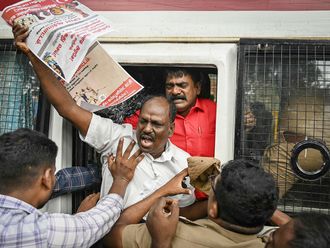
Dubai: Will India’s airlines go the ‘Premium Economy’ route to pick up higher revenues and profit margins on their services to the UAE?
Airline industry sources say doing so would be the best option for India’s carriers on this high-frequency, high-demand route – and more so after Emirates announced it will do so from October in their flights to two Indian cities, Mumbai and Bengaluru.
"By targeting price-sensitive business passengers and comfort-seeking VFR (visiting friends and relatives) and leisure travelers, the Premium Economy has become a value-added product for airlines,” said Linus Bauer, founder and Managing Director at Dubai-based Bauer Aviation Advisory. ((It represents) a significant revenue stream and strategic mechanism to improve yields – especially on long-haul services."
Research by his firms shows that a Premium Economy seat's production and implementation cost is 1.6 times higher than that of an economy seat. "Yet on long-haul flights, it generates 2.3 times higher revenues than its production cost, giving it the highest marginal returns across all cabin classes," said Bauer.
But would adding a Premium Economy generate a similar sort of response on the relatively short-haul flights between UAE and India? And more so given that ticket rates on the sector consistently fly high?
"Bengaluru is an IT hub and Mumbai attracts a lot of corporate travelers,” said Husain Iqbal, General Manager – GSA at Sharaf Travel. “The product would experience some popularity even among point-to-point passengers."
As for Emirates, the Premium Economy rollout gives it significant advantages in tapping traffic from India on longer-haul flights transiting through Dubai.
Will Indian carriers follow suit?
Whether low-cost carriers would consider offering a Premium Economy service will likely depend on a careful analysis of market demand, operational feasibility, and potential profitability.
Among Indian carriers, Vistara and Air India offer Premium Economy services on select long-haul flights. Iqbal said that once Vistara’s merger with Air India completes next year, there is no telling what will happen to its existing services. Air India announced a Premium Economy product (in March this year), albeit limited to India-US routes.
"They had announced plans for expansion on the same, and it remains to be seen whether Air India will deploy a premium service between other countries as a means to capture the wider India-USA transit traffic through Dubai," said Lalitya Dhavala, Valuations Consultant with Ascend by Cirium.
For low-cost carriers like IndiGo and SpiceJet, entering the Premium Economy segment could be a significant shift in their business model.
"Low-cost carriers typically operate with a single cabin class to maximize passenger load and maintain low operating costs,” said Bauer. “However, following a hybrid model - like flydubai, which offers a Business Class and Economy - might be possible."
flydubai's decision to offer a Business Class, influenced by the network partnership with Emirates, shows a market for enhanced services even from budget or hybrid carriers.
The possibility of Indian low-cost carriers launching a premium service soon is not a long shot. "IndiGo might change track and go the hybrid way if they are to compete with Air India,” said an aviation industry analyst. “Given the recent aircraft order they have put in (500 Airbus A320s during the Paris airshow) and if the deliveries are done in a phased manner, it is possible they might provide a premium offering as early as next year."
Who stands to gain from a 'premium' service?
Despite the perception that the UAE-India travel segment largely consists of budget-conscious customers, many travelers still value comfort and additional amenities, particularly for long-haul flights (e.g., via the Gulf).
Return airfares for Premium Economy seats from on emirates Dubai to Mumbai are at Dh3,275 (for travel in November) and tickets to Bengaluru are Dh3,395.
"It (the service) could attract business travelers, tourists, or those who frequently fly between the two countries and are looking for added comfort without the high cost of a Business Class ticket,” said Bauer.
“There might not be an overwhelmingly high demand initially. Still, it could gradually increase as customers experience the service, plus the current growth of the middle-class and propensity to travel in India."
Iqbal predicts that most travelers immediately using the service would be transit passengers from Mumbai and Bengaluru wishing to fly on long-haul routes (India-Dubai and then onto Europe/ US/ Canada).
"There could also be passengers whose companies pay for their employees' annual tickets,” said Mark D. Martin, CEO of Martin Consulting. “Alternatively, travel and destination management firms can promote the offering to leisure travelers as a value-add.
“The Premium seat could be booked along with a stay at a luxury resort, for example."











